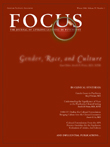The Course of Depression in Elderly Patients
Abstract
Objective: Studies on the course of major depressive disorder (MDD) among elderly persons are limited to short periods of follow-up, seldom provide comparisons with younger cohorts, and raise other methodological concerns. Methods: Utilizing 15 years of prospective data from the NIMH Collaborative Depression Study, the authors examined the index episode of MDD and the time until first observed recurrence in those who recovered for subjects in four age-groups defined by age at intake: 17–30, 31–50, 51–64, and 65–79 years. Assessments were conducted every 6 months for 5 years and annually thereafter. Survival analysis examined time until recovery and time to first recurrence. Results: Median time-to-recovery was similar for the four groups. Median time-to-first recurrence was significantly shorter for oldest versus the 51–64-year-old group but not the two other groups. The oldest age-group was distinguished from the younger groups by being more likely to be divorced/widowed/separated, to have primary depression, and to have a history of medical illness, particularly cardiovascular disease or cancer. There was no difference in the generally low levels of pharmacotherapy prescribed during the index episode or the subsequent well interval. Conclusions: Elderly patients with MDD may have a greater risk of recurrence than younger individuals. Low levels of treatment characterize the somatic treatment in all the study subjects, regardless of age-group.



